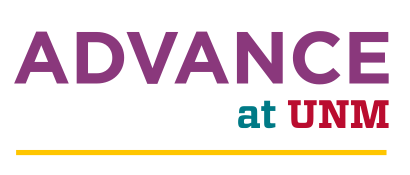Faculty Fanfare: Mohammad Motamed

UNM Associate Professor of Computational Mathematics Mohammad Motamed is co-leading two federal grants that he hopes will see quantum computing revolutionize fields like cryptography, optimization, and materials science.
The grants from the National Science Foundation and the Department of Energy bring $500,000 to UNM, and are part of a larger interdisciplinary project involving collaborators from Sandia National Labs and Lawrence Livermore National Labs, as well as Virginia Tech.
The idea is to develop quantum digital twins, or mathematical and statistical tools designed to emulate quantum computers.
Motamed said the potential for quantum computing is immense.
“However, achieving quantum advantage—the ability of quantum computers to outperform classical computers—remains a significant challenge. The tools we are developing aim to overcome critical hurdles, enabling more reliable, scalable, and impactful quantum computations,” he said.
“At this pivotal moment in the evolution of quantum technology, this work has the potential to accelerate progress in both foundational research and practical applications.”
As part of trying to develop the quantum digital twins, the grant work will focus on addressing two major challenges. The first is uncertainty in quantum computers, which arises from their interaction with the outside environment, such as thermal fluctuations, cosmic rays, and other sources of noise. This includes accounting for and mitigating errors and uncertainty in quantum computations, which is crucial for reliable quantum applications, Motamed said.
The second challenge is scalability. Achieving quantum advantage requires tackling the exponential growth in complexity as quantum systems expand with more qubits, or quantum bits. Qubits are the basic unit of information in quantum computing.
In terms of the potential impact of this research, Motamed said he hopes it will serve as a foundation for more reliable and scalable quantum technologies.
“Furthermore, I envision this work opening new doors for collaborations across academia, industry, and national labs, while inspiring and training future scientists to tackle the complex challenges of quantum computing,” he said.
Motamed said the two grant projects are deeply interconnected, as they address different aspects of the same overarching goal: developing robust quantum emulators.
“These tools will not only aid in validating quantum computations but also guide the design of future quantum systems by bridging the gap between theoretical models and experimental realities,” he said.
A team comprising one faculty member from UNM, three from Virginia Tech, two distinguished scientists from Sandia and Lawrence Livermore National Laboratories, along with a postdoc and three PhD students, will collaborate closely on this project.
Motamed, who has been at UNM since 2013, said the research is personally meaningful to him for several reasons, including his background in numerical analysis and uncertainty quantification, which “makes this project a fascinating intersection of my core expertise and a rapidly emerging field.”
He’s also excited to work on quantum emulation, which is the prospect of contributing to robust quantum emulators, a crucial step toward achieving quantum advantage.
Along the way, Motamed said the project also involves advising and mentoring the next generation of researchers, which he said is a fulfilling aspect of the work. At UNM, the grants will support two PhD students as research assistants, helping them advance their dissertations while contributing to cutting-edge research.
“For audiences interested in the transformative possibilities of quantum computing, this project exemplifies the collaborative effort and innovative thinking needed to bridge theoretical mathematics, computational science, and quantum technology. At UNM, we are proud to play a pivotal role in shaping this exciting future.”
